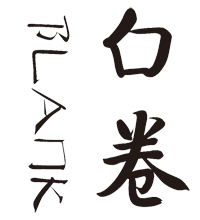This year's reading summary and recommendations

A total of 68 books were read during the year. Monthly reading logs have been sent to newsletter subscribers, and some of the books have been mentioned in the video issue. For those who subscribed but did not receive Email, please contact me, thank you.
Recommendations for the year:
1 Dune (six books)
Read all the books in this set on Weebly Books. Dune gets more bizarre and majestic the further back you write. With such a massive structure, by book three, it was basically running towards epic. In books 4 and 5, the writing declines slightly, but the author's understanding of the universe, time, and human society is really profound. All in all, I thought Dune was no less a masterpiece than the Galactic Empire.
When I think about how boring I almost wanted to give up when I started reading it, I think there's something to be said for big waves. There are some books and authors that, if they are still glowing today, it means that it has a timeliness that is on the same frequency as the present, or, it transcends time.
2 Moses on the Plains by Rao Xuetao
This is a short novel, but well-structured, with the likeness of a master. I think Rao Xuetao should have been influenced by existentialism, so there are a lot of negative and despairing things in it, as well as very absurd things. Of course, unfortunately, all of these stories exist in reality.
3 Journey into Deep Time by Robert McFarlane
This is a superbly written book, with excellent, well-used and quite literate writing by the author, probably related to his professional status. Of course, this is not separate from the translator's efforts, and even the translator's translation of the original text is a plus.
In terms of content, it's also a very interesting piece of work; this is the first book I've seen that looks at the world using the underground as a time scale. It's a very specific reflection, but also highly philosophical.
4 High Pressure Years Janet Hibbs
This book is not my favourite writing style, but the content is extremely important. Because it's a summary of a psychologist's hard lessons, stemming from her own son's depression. So with that said, I think any parent in these high-pressure times should flip through it and use it as a cautionary tale. (The best medicine in this world is hope.)
5 Children in the County, Lin Xiaoying
This book is worth checking out. Simply put, it's the author's very accurate description of the state of education within the county nowadays, and the fact that these conditions are actually so common that they can't be avoided even in the cities.
If there's a downside, it's probably that the author analyses the current situation too little and doesn't suggest effective ways to address it, though the author acknowledges this later on and states a reason for it, but it's a reason that I can understand, but don't endorse. (I choose to see the beauty, but address the ugliness first)
6 Intellectuals and Society Thomas Saussure
This book is primarily about intellectuals, or rather, it should be about public intellectuals who have caused countless intellectual disasters in areas they are not good at. This is in line with the idea that professional intellectuals should not speak in areas that are not their own speciality, and that the public should not believe it. But in turn, this is very difficult to do, so the best that can be done is that professional intellectuals should actively defend common sense in their own areas of expertise. But this is also difficult to do because the media and the public are not interested in it.
So at the end of the day, the ultimate problem remains that the world will always be shaped by a small number of extreme thinkers, and perhaps, as Jung said, human beings have self-destructive impulses. In fact, the tactics used by these public intellectuals are very simple: simple attribution and arbitrary deductions oriented towards ambiguity. This is what we usually call hatchet jobs and the constant practice of making different hats. But this is really hard to crack when a public sphere is dominated by an atmosphere of extremes.
